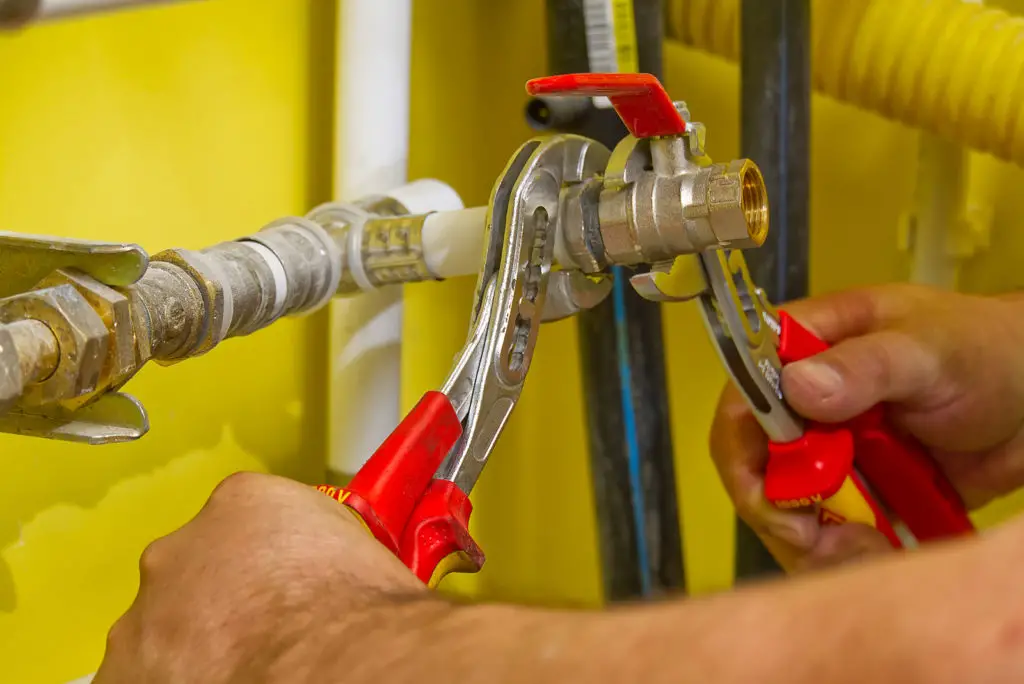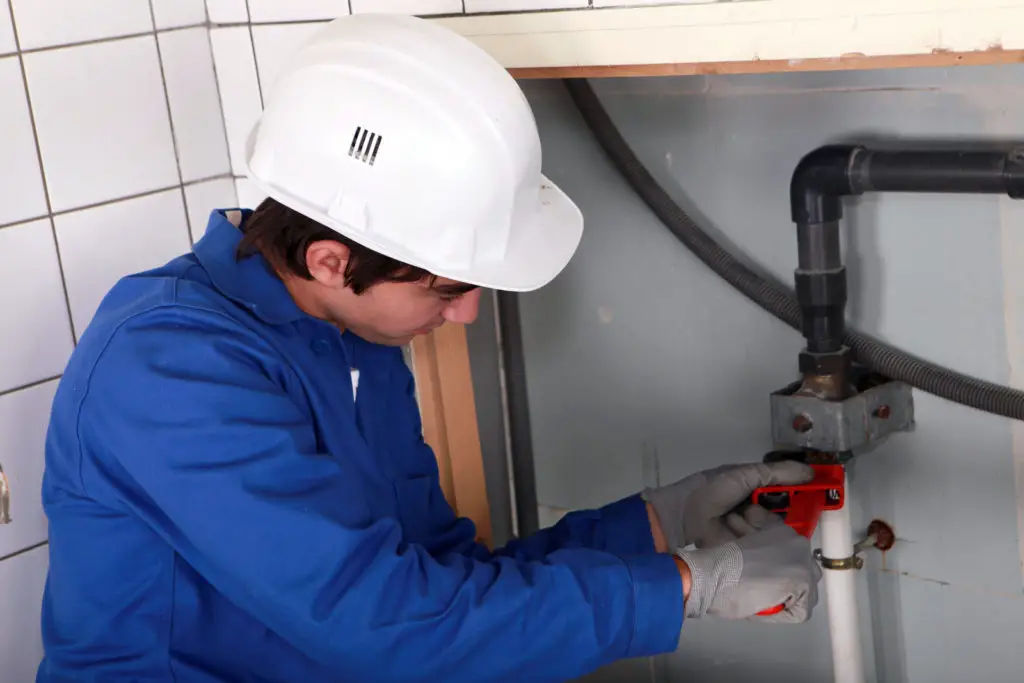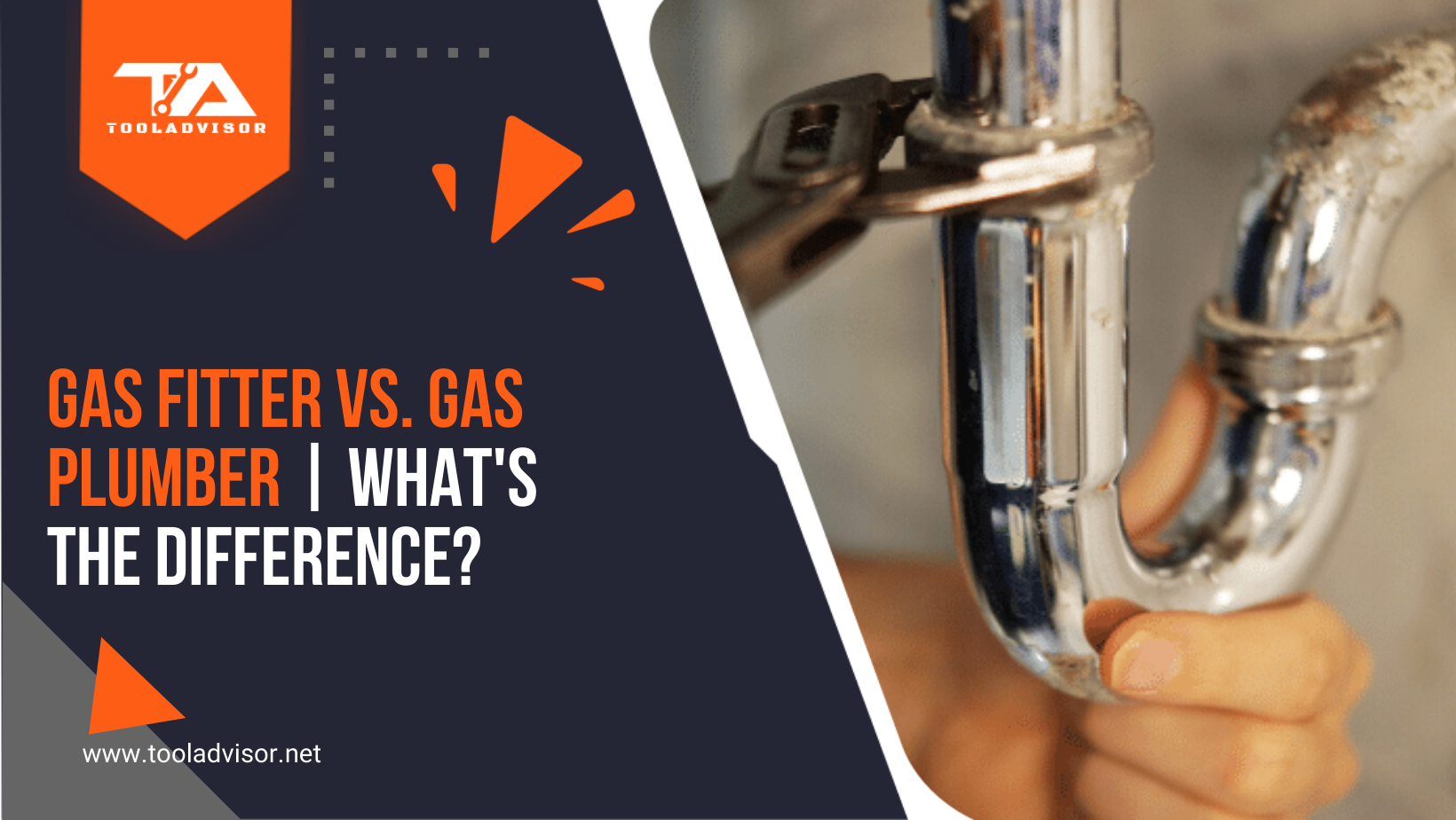Sometimes, you might confuse distinguishing between a gas fitter and a gas plumber. They are both very different professions, but they do share some similarities. So what is the difference?
The primary difference between a gas fitter and a gas plumber is that only one installs natural gas pipes for fuel sources while both install heating equipment. An excellent way to think of it is that the two jobs overlap in their duties, but one specializes in installing piping systems while the other specializes in installing heating units.
It’s not just semantics. It’s an important distinction because there may be significant consequences if you have one but need the other.
This article will focus on how these two trades differ so you can make an informed decision on which trade may be right for you! Here’s everything you need to know about this topic.
What’s The Difference Between A Gas Fitter & A Gas Plumber?
Some plumbers can perform gas fitting services. However, only Gasfitters specifically trained to work with natural gases cannot provide plumbing services.
What is a Gas Fitter?

A gas fitter is a tradesperson who can install and maintain heating appliances that run on natural gas. Their expertise lies in installing piping systems for homes that use natural gas as their main energy source.
What Does A Gas Fitter Do?
Gasfitters install and maintain various gas appliances, from ovens to hot water systems. They can also repair faulty installations and renovate homes where the existing equipment is not up to standard. In some provinces, Gasfitters must be licensed.
Important Duties Of A Gas Fitter
Some of a fully qualified Gas Fitter’s key duties can include:
- Providing advice and information on the safe use of natural gas appliances to avoid danger.
- Installing, repairing natural gas lines, and maintaining gas heating, cooking, and hot water systems in residential homes.
- Inspecting gas installations for safety purposes. Gasfitters need to perform a leak test for every installation or modification they do to ensure there are no leaks.
- Maintaining appliances and sending out reminders for scheduled maintenance. In some cases, Gasfitters prepare quotes for homeowners before renovations take place.
- Choose the most efficient heating systems for homes.
What Is a Gas Plumber?

It’s crucial to understand that a gas fitter isn’t the same as a plumber before hiring one. While they appear to be similar tasks that involve pipes and gas connections, plumbing and gas fitting installation are two distinct professions with varying levels of training, accreditation, and licensing necessary to perform legal work.
It’s not unusual to find plumbers who are fully qualified to work on plumbing and gas installations. Gas plumbers are individuals that decided to acquire additional gas fitting training and certification after completing their plumbing apprenticeship.
What Does A Gas Plumber Do?
In addition to standard plumbing services, gas plumbers repair or install heating systems that run on natural gas. They can also work on gas hot water units and ovens connected to the residential gas supply.
What about a simple plumber?
A plumber is the professional you’ll call when your toilet doesn’t flush or your faucet leaks. They can deal with clogged drains, replace water lines, and install efficient plumbing systems using the latest technology. You might also need a plumber to build a house or update an old one with new water or gas lines.
Important Duties Of A Gas Plumber
Some of a Gas Plumber’s essential duties can include:
- Installing, repairing, and maintaining gas heating systems in residential homes.
- Fixing all types of residential water supply issues.
- Pipe disconnection, repair, fitting, etc.
- Repairing or replacing hot water units that run on natural gas.
However, it’s not unusual to find fully qualified plumbers working on plumbing and gas projects. Gas plumbers are individuals who elected to complete additional gas fitting training and certification after completing their plumbing apprenticeship.
This is becoming more popular as some gas plumbing tasks, such as installing gas hot water systems, also require gas work to be done safely and comply with local building codes.
Frequently Asked Questions
Is a plumber the same as a gas fitter?
If you need a plumber, it’s because your job requires plumbing, drainage, or water-related work. Call a plumber and gasfitter if you require someone who can do both gas- and water-related tasks.
Do plumbers and gasfitters do similar work?
Yes and no. Gasfitters perform specific tasks that must adhere to safety standards, including installing appliances that run on natural gas. Their knowledge is limited to heating gas systems used in homes that are powered by this fuel source. Plumbers, however, can handle a wider range of tasks, including installing gas piping.
How do I know if my home needs a plumber or a gas fitter?
If you need to install gas lines for your appliances or modify the existing ones (for example, by moving them), you should hire an expert who has undergone training and certification specific to these activities. Pipes laid by unqualified individuals could violate local building codes and create safety issues, including carbon monoxide poisoning.
How long does it take to become a plumber?
It depends on the type of plumbing certification you’re pursuing. For example, suppose you want to pursue training in trenchless technology (the process that doesn’t require digging trenches when laying new pipelines). In that case, you will have to undergo more training than traditional vocational programs.
How long does it take to become a gas fitter?
You should be ready for further education if you want to become a professional gasfitter – that includes on-the-job experience followed by formal qualifications in this trade.
How do you plumb a natural gas line?
If you have to work on gas lines in your home, it’s best to hire a professional who is both qualified and experienced. If you try to do the job yourself and lack the knowledge, training, and certification to handle this task, you could be putting yourself and others at risk.
Conclusion
Being a gasfitter and plumber is two different trades that overlap in working on both natural and hot water systems that run on natural gas. Gas fitters specialize in working with gas lines and safety measures when dealing with anything involving this fuel source. At the same time, plumbers can do anything from installing hot water units to trenchless technology.

